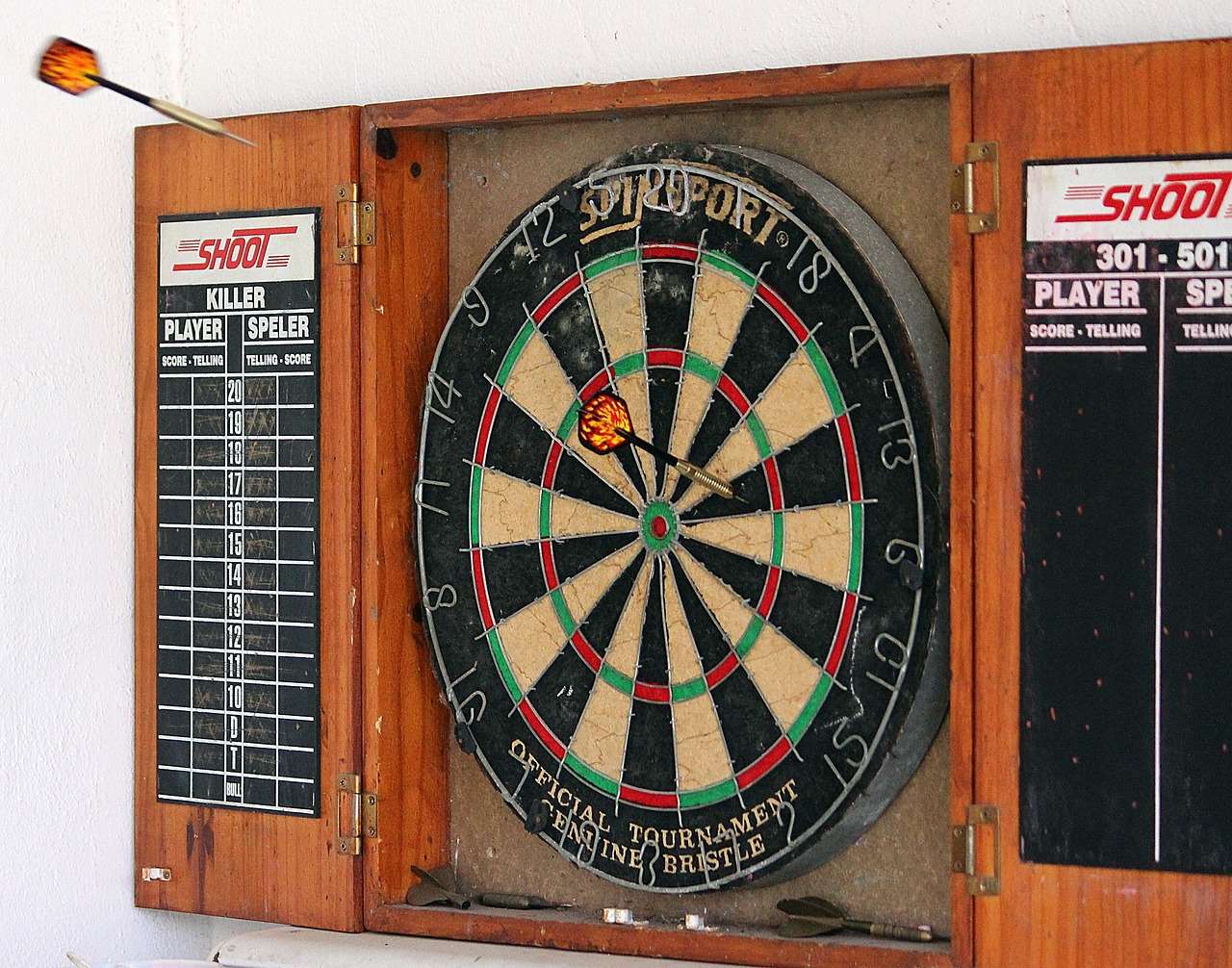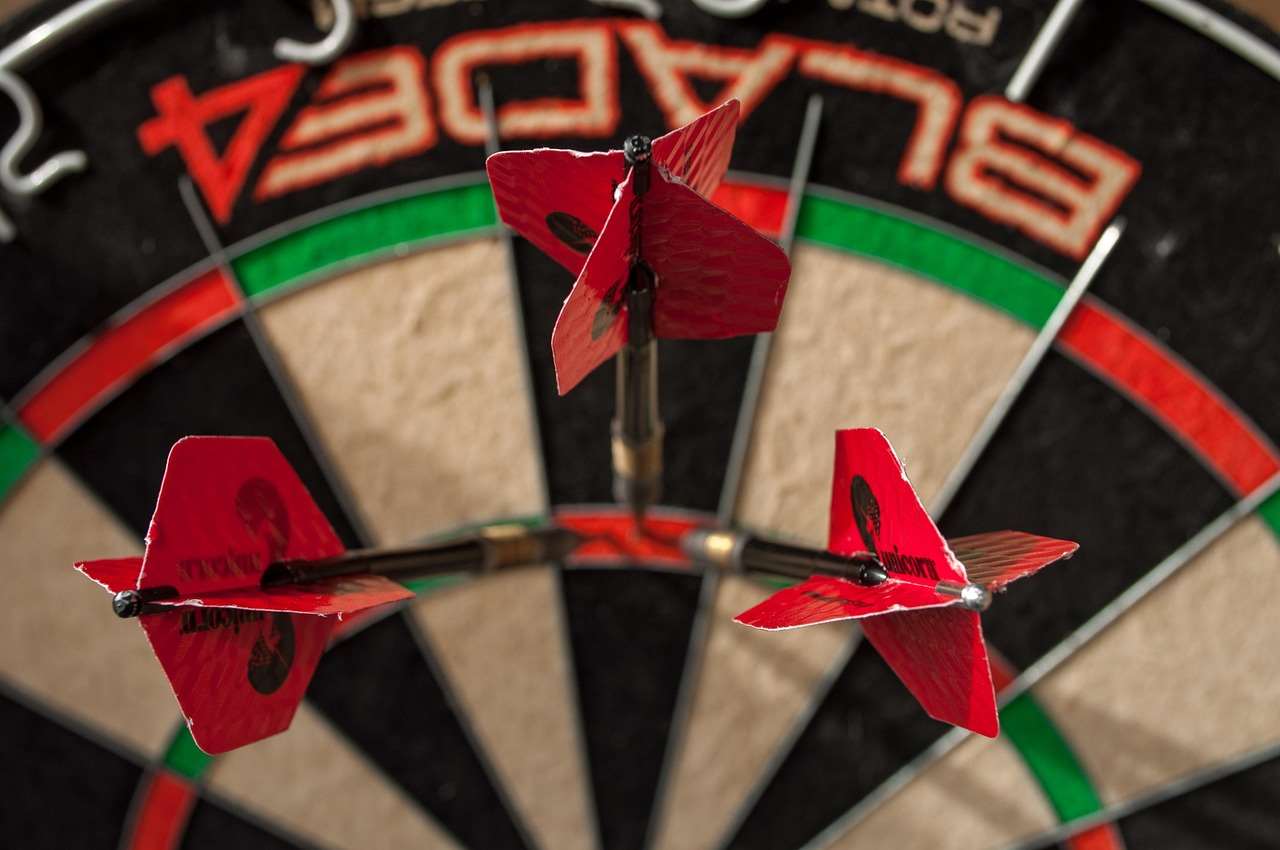Understanding darts player privacy rights legal issues is crucial for both professional and amateur players navigating the modern sporting landscape. This article provides a comprehensive overview of these rights, exploring everything from data protection regulations to image rights and how these laws impact players in tournaments, online platforms, and endorsements.
⚠️ Still Using Pen & Paper (or a Chalkboard)?! ⚠️
Step into the future! The Dart Counter App handles all the scoring, suggests checkouts, and tracks your stats automatically. It's easier than you think!
Try the Smart Dart Counter App FREE!Ready for an upgrade? Click above!
Understanding Darts Player Privacy Rights Legal Frameworks
The legal framework surrounding privacy rights can be complex, varying depending on location and jurisdiction. Generally, it encompasses several key areas:
- Data Protection Laws: Regulations like GDPR (General Data Protection Regulation) in Europe and similar laws elsewhere govern how personal data is collected, stored, and used. This applies to player data held by tournament organizers, leagues, and sponsors.
- Image Rights: Players have rights over the use of their image for commercial purposes. This includes photographs, videos, and other likenesses.
- Contract Law: Agreements between players and sponsors, leagues, or management agencies often contain clauses related to privacy, data usage, and image rights.
- Defamation Laws: Protect players from false and damaging statements made publicly.
It’s essential for darts players to understand these legal principles to protect their personal information and commercial interests. Knowing the basics helps players to better understand Business of Darts, which requires you to understand the laws.

Data Protection and GDPR for Darts Players
The General Data Protection Regulation (GDPR) has a significant impact on how organizations handle the personal data of darts players. GDPR applies if the organization (tournament organizer, league, sponsor, etc.) is based in the EU or processes the data of individuals within the EU, regardless of where the organization is located.
Key principles of GDPR include:
- Lawfulness, Fairness, and Transparency: Data processing must have a lawful basis (e.g., consent, contract). Players must be informed about how their data is used.
- Purpose Limitation: Data can only be collected for specified, explicit, and legitimate purposes.
- Data Minimization: Only necessary data should be collected and processed.
- Accuracy: Data must be accurate and kept up to date.
- Storage Limitation: Data should only be stored for as long as necessary.
- Integrity and Confidentiality: Data must be protected against unauthorized access, loss, or destruction.
For darts players, this means tournament organizers, leagues, and sponsors must obtain consent for data processing, provide clear privacy notices, and allow players to access, correct, or delete their data. Failure to comply with GDPR can result in significant fines.
Protecting your data is crucial, especially when considering that increased darts tourism boost local area economic impact.
Image Rights and Commercial Use
Image rights are crucial for professional darts players, as their image is often used for endorsements, merchandise, and promotional materials. Players have the right to control how their image is used for commercial gain.
This includes:
- Photographs and Videos: Players can control the use of photographs and videos of themselves.
- Likeness: This includes any representation of the player, such as illustrations or caricatures.
- Endorsements: Players must agree to the use of their image in endorsement deals.
Players should carefully review contracts with sponsors and management agencies to ensure that their image rights are adequately protected. Contracts should specify how the player’s image can be used, the duration of the agreement, and the compensation the player will receive. It’s important to remember the positive economic benefits hosting darts event for the region.

Managing Image Rights for Darts Players
Here are some tips for managing image rights:
- Register Your Image Rights: In some jurisdictions, it may be possible to register your image rights to provide additional legal protection.
- Monitor Usage: Regularly monitor how your image is being used online and in marketing materials.
- Enforce Your Rights: If your image is being used without your permission, take legal action to enforce your rights.
- Seek Legal Advice: Consult with an attorney specializing in intellectual property law to ensure your image rights are adequately protected.
Knowing your rights is the first step to ensure that you can earn revenue from darts fans spending local economy.
Social Media and Online Privacy Concerns
Social media presents unique privacy challenges for darts players. Players often use social media platforms to connect with fans, promote themselves, and share information about their careers. However, this also exposes them to privacy risks, such as:
- Data Collection: Social media platforms collect vast amounts of data about users, including their demographics, interests, and online activity.
- Privacy Settings: Players need to carefully manage their privacy settings to control who can see their posts and personal information.
- Online Harassment: Players may be subject to online harassment, including cyberbullying and hate speech.
- Impersonation: Fake accounts can be created to impersonate players, damaging their reputation.
Players should be mindful of the information they share online and take steps to protect their privacy.
Protecting Your Privacy on Social Media
Here are some tips for protecting your privacy on social media:
- Review and Adjust Privacy Settings: Regularly review and adjust your privacy settings to control who can see your posts and personal information.
- Be Mindful of What You Share: Think carefully before posting anything online, as it can be difficult to remove once it’s been published.
- Report Harassment and Abuse: Report any instances of online harassment or abuse to the social media platform.
- Use Strong Passwords: Use strong, unique passwords for your social media accounts and enable two-factor authentication.
Your career can be directly impacted by the darts impact local economy study.

Contractual Obligations and Privacy Clauses
Contracts between darts players and sponsors, leagues, or management agencies often contain clauses related to privacy, data usage, and image rights. Players should carefully review these clauses to ensure that their privacy is adequately protected.
Typical privacy clauses may cover:
- Data Collection and Usage: How the player’s personal data will be collected and used.
- Image Rights: How the player’s image can be used for commercial purposes.
- Confidentiality: Restrictions on disclosing confidential information.
- Social Media Usage: Guidelines on social media usage.
Players should seek legal advice before signing any contract to ensure they understand their rights and obligations. Make sure that your attorney understands the unique considerations of darts tournaments local business impact.
Data Security Measures for Darts Organizations
Darts organizations, including tournament organizers and leagues, have a responsibility to implement appropriate data security measures to protect the personal data of darts players. These measures should include:
- Data Encryption: Encrypting sensitive data both in transit and at rest.
- Access Controls: Implementing strict access controls to limit who can access personal data.
- Regular Security Audits: Conducting regular security audits to identify and address vulnerabilities.
- Employee Training: Providing employee training on data protection and security best practices.
- Incident Response Plan: Having an incident response plan in place to deal with data breaches.
The Role of Governing Bodies
Governing bodies in darts, such as the Professional Darts Corporation (PDC) and the World Darts Federation (WDF), play a crucial role in setting standards for data protection and privacy. These organizations can implement policies and guidelines to ensure that darts players‘ privacy rights are respected and protected.
Governing bodies can also:
- Provide Guidance: Offer guidance to players and organizations on data protection and privacy best practices.
- Enforce Regulations: Enforce regulations related to data protection and privacy.
- Mediate Disputes: Mediate disputes between players and organizations regarding privacy issues.

Legal Recourse for Privacy Violations
If a darts player believes that their privacy rights have been violated, they may have legal recourse. This could include filing a complaint with a data protection authority, bringing a lawsuit for breach of contract or defamation, or seeking injunctive relief to stop the unauthorized use of their image.
The specific legal options available will depend on the jurisdiction and the nature of the violation. Players should seek legal advice to determine the best course of action.
Insurance Policies and Privacy Protection
Some insurance policies may provide coverage for privacy-related risks, such as data breaches or defamation claims. Darts players and organizations should review their insurance policies to determine whether they provide adequate coverage for these risks. Consider how how darts events help pubs bars are often structured to learn more about potential risks involved.
Future Trends in Darts Player Privacy Rights Legal Issues
The legal landscape surrounding darts player privacy rights legal issues is constantly evolving. Future trends to watch include:
- Increased Regulation: Data protection laws are likely to become more stringent, with greater emphasis on individual rights and corporate accountability.
- Artificial Intelligence (AI): AI technologies are being used increasingly to collect and analyze data. This raises new privacy concerns, as AI algorithms can make inferences about individuals based on their data.
- Biometric Data: The use of biometric data, such as facial recognition, is becoming more common. This raises privacy concerns, as biometric data is highly sensitive and can be used to identify individuals.

Staying Informed About Darts Player Privacy Rights Legal
To stay informed about darts player privacy rights legal issues, players and organizations should:
- Monitor Legal Developments: Keep abreast of new laws and regulations related to data protection and privacy.
- Attend Industry Conferences: Attend industry conferences and seminars to learn about the latest trends and best practices.
- Consult with Legal Experts: Consult with attorneys specializing in data protection and intellectual property law.
Conclusion
Protecting darts player privacy rights legal is essential for safeguarding personal information, maintaining control over image rights, and ensuring fair treatment in the sporting world. By understanding the relevant legal frameworks, implementing appropriate data security measures, and staying informed about emerging trends, players and organizations can navigate the complex landscape of privacy rights effectively. Remember to consult with legal professionals to ensure full compliance and protection. Take the first step today and proactively review your privacy settings and contracts to ensure your rights are fully protected.
Hi, I’m Dieter, and I created Dartcounter (Dartcounterapp.com). My motivation wasn’t being a darts expert – quite the opposite! When I first started playing, I loved the game but found keeping accurate scores and tracking stats difficult and distracting.
I figured I couldn’t be the only one struggling with this. So, I decided to build a solution: an easy-to-use application that everyone, no matter their experience level, could use to manage scoring effortlessly.
My goal for Dartcounter was simple: let the app handle the numbers – the scoring, the averages, the stats, even checkout suggestions – so players could focus purely on their throw and enjoying the game. It began as a way to solve my own beginner’s problem, and I’m thrilled it has grown into a helpful tool for the wider darts community.